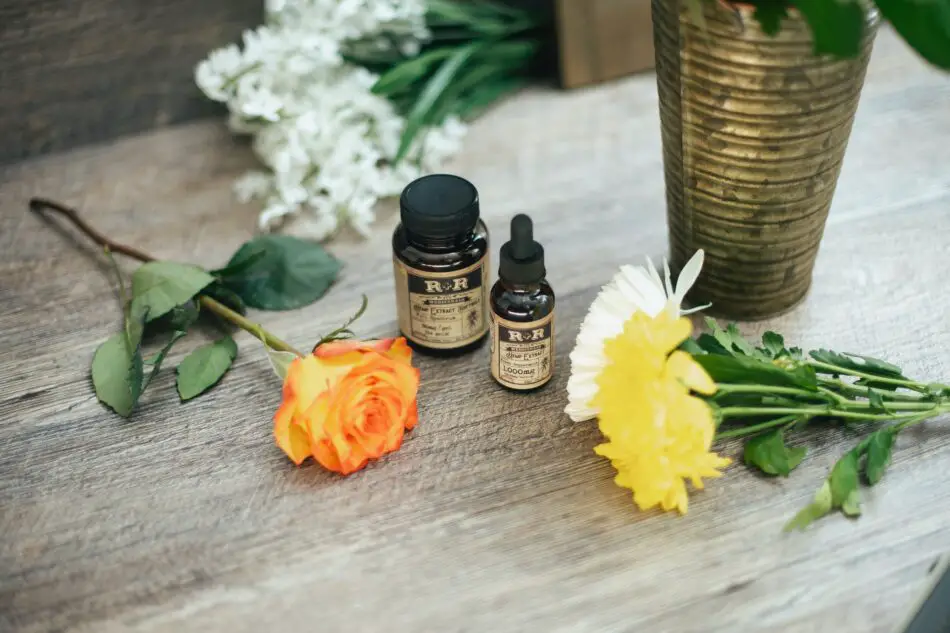What color is rosehip oil? This is a question that many people have asked, and it is a valid question. After all, this oil comes from a plant that has many different colors. I will explore the answer to this question and learn more about rosehip oil in the process.
Rosehip oil is extracted from the seeds of a rose bush. The color of the oil depends on the variety of rose bushes from which it was extracted. Rosehip oil can be clear, pale yellow, golden, orange, or red. The color does not affect the quality of the oil.
If you are interested in using rosehip oil for its skin benefits, look for an organic option that has been cold-pressed. This type of processing preserves the nutrients in the oil so that they can be more easily absorbed by your skin.
- Red rosehip oil contains high levels of carotenoids, which are powerful antioxidants that help to protect the skin from damage caused by free radicals.
- Yellow rosehip oil is rich in Vitamin C, which helps to brighten the skin and promote collagen production.
- White rosehip oil contains a higher level of essential fatty acids than any other color, making it ideal for dry or mature skin types.
No matter what color you choose, rosehip oil is sure to give your skin a boost of nourishment and hydration. So, go ahead and add it to your skincare routine!

Is Rosehip Oil Effective, Which One Is Better?
There are three main types of rosehip oil: cold-pressed, macerated, and infused. Each type has different properties that make it more or less effective for certain skin issues. For example, cold-pressed rosehip oil is the purest and has the highest concentration of nutrients, making it ideal for treating dryness, wrinkles, and scars.
Macerated rosehip oil is less potent but still contains many beneficial nutrients and can be used to treat acne and inflammation. Infused rosehip oil is the least potent but can be used to moisturize the skin and hair.
So, which type of rosehip oil is right for you? It depends on your specific skin issue. If you’re looking to treat dryness, wrinkles, or scars, cold-pressed rosehip oil is your best bet. If you’re dealing with acne or inflammation, macerated rosehip oil is a good choice. And if you just want to moisturize your skin or hair, infused rosehip oil is a great option.
No matter which type of rosehip oil you choose, be sure to read the label carefully and follow the directions. And always consult with a healthcare professional before using any new product on your skin.
What Dilution Is Good For My Rosehip Oil?
When it comes to rosehip oil, diluting it with a carrier oil is always a good idea. This is because rosehip oil is very potent and can cause irritation if used directly on the skin. By diluting it, you can still enjoy the benefits of rosehip oil without having to worry about any negative side effects.
There are a few different carrier oils that you can use to dilute. Some of the most popular options include jojoba oil, almond oil, and coconut oil. Just choose one that you know your skin will tolerate well.
To Dilute or Not to Dilute?
You may be wondering if you should bother doing it at all. After all, using an oil that is already diluted means that you won’t get as many of the benefits, right?
This isn’t necessarily true. While you may not get as many of the benefits if you use a diluted version of rosehip oil, you will still get plenty of them. And, more importantly, you won’t have to worry about any negative side effects.
There are plenty of other oils out there that can be used for diluting purposes, but these are some of the most popular ones. If you have sensitive skin, you might want to consider using a different oil altogether. Just remember that rosehip oil is very potent and should be diluted before use. Do some research and experiment until you find the right mixture for your skin!
Doing a patch test on your skin is always a good idea when trying out new products, and that includes diluted rosehip oil. Apply a small amount of the mixture to an inconspicuous area of skin and wait 24 hours to see if there is any reaction.
If there is no reaction, you’re good to go! If you do experience redness, itching, or burning, however, discontinue use immediately and wash the area with soap and water. Rosehip oil may be beneficial for the skin, but it’s not worth risking a bad reaction. Better safe than sorry!
Does Rosehip Oil Change Color?
Yes, it does when it goes rancid. The color of the oil will change from a golden color to a darker amber color. The oil will also have a bitter taste and smell when it goes rancid. If you come across rosehip oil that has changed color, it’s best to discard it.
When stored properly, rosehip oil can last for up to 18 months. To extend its shelf life, always store the oil in a cool, dark place away from direct sunlight. You can also refrigerate the oil, but make sure to bring it back to room temperature before using it on your skin.
Where to Buy Rosehip Oil
There are many places to buy rosehip oil, but not all of them sell the same quality product. Here are a few tips to help you find a reputable source for rosehip oil:
- Look for a company that specializes in selling essential oils. These companies usually have more experience and knowledge about different types of oils and their benefits.
- Check the company’s website or online store. Make sure they provide detailed information about their products, including the ingredients and how to use them.
- Read customer reviews. See what others have said about the quality of the rosehip oil before you make your purchase.
With these tips in mind, you should be able to find a high-quality rosehip oil that meets your needs.
Final Words
Rosehip oil can range in color from light pink to dark red, depending on the type of rosehip used. The color doesn’t affect the efficacy of the oil, so choose the one that you like best!
So there you have it: everything you need to know about rosehip oil, including what color it is! I hope this article was helpful. If you have any questions or comments, please feel free to leave them below. And don’t forget to share this article with your friends if you found it helpful!

